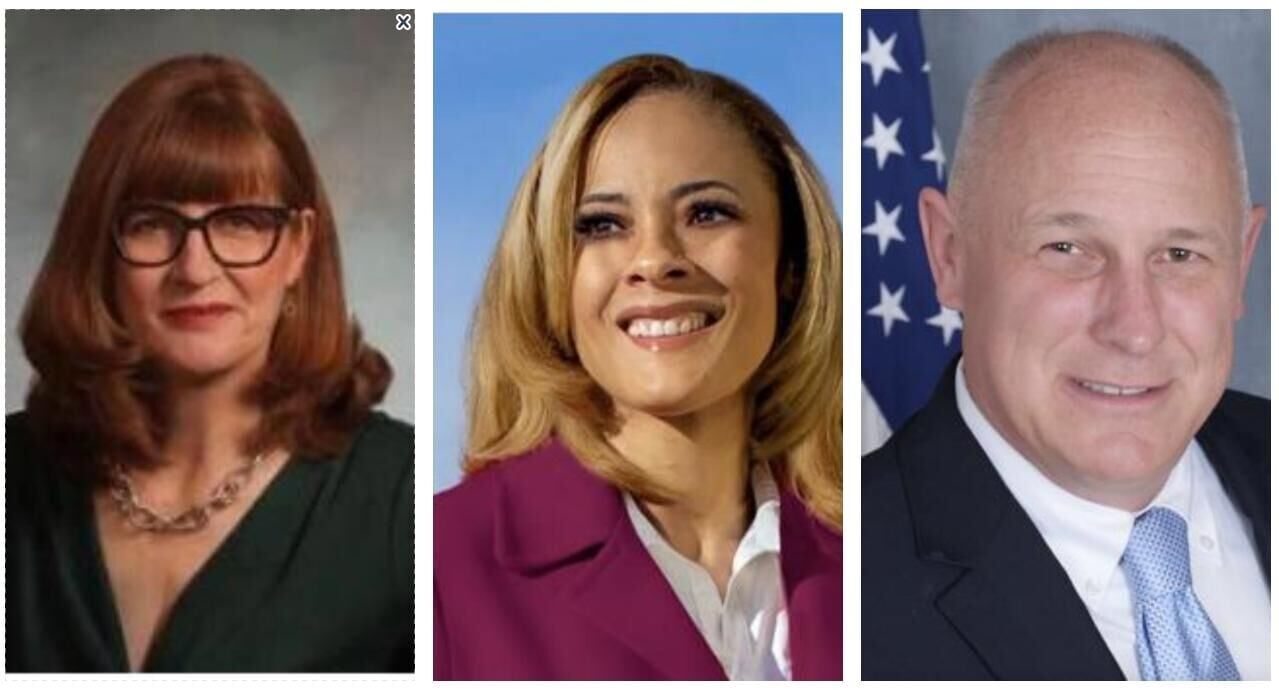Colorado House speaker removes two Democrats from committee, including lawmaker who joined pro-Palestinian protesters, disrupted proceedings
The House has removed two Democrats — including a Denver legislator who previously clashed with leaders and recently disrupted proceedings when she joined a pro-Palestinian protest inside the chamber — from an influential committee.
House Speaker Julie McCluskie removed Rep. Elisabeth Epps, D-Denver, and Rep. Bob Marshall, D-Highlands Ranch, from the House Judiciary Committee. She also made other committee changes.
“Committees are critical to the legislative process and where so much of our work gets done,” McCluskie said. “With session just around the corner, these committee assignments lay the groundwork to continue doing the work Coloradans elected us to do.”
The speaker added: “Each lawmaker and the committees they serve on play an important role in crafting critical legislation that will uplift hardworking families, invest in public education, protect our water and air for future generations, and make Colorado a more affordable place to live and thrive.”
Epps disrupted her chamber’s proceedings when she joined pro-Palestine protesters during a special session in November on property taxes.
The Denver Democrat has also been involved in public disputes with the chair of the House Judiciary Committee, Rep. Mike Weissman, D-Aurora. The two have clashed, both during committee hearings and in other settings.
In a statement first reported by the Colorado Sun, McCluskie addressed the conflicts involving Epps and Marshall that have taken place within the Judiciary Committee.
“Serving on a member’s top choice of committee is a privilege — not a right. I took this step to address frustrations that the Judiciary Committee needed a reset due to the level of acrimony in the personal relationships on the committee and to help deliver the progressive outcomes our caucus is looking for,” the speaker said. “My decisions on where to appoint members depend on their respect of their colleagues, ability to collaborate and adherence to decorum, which was clearly violated during our special session last month.”
Marshall and Epps had also filed a lawsuit in July against the leaders of both House caucuses, alleging the chamber failed to adhere to the state’s open meetings law. That lawsuit was settled in September with an agreement from leadership not to hold meetings that could violate the law nor to use open messaging apps to conduct business.
Epps previously criticized McCluskie for her lack of leadership, accusing the speaker during a caucus meeting in May that she has not done enough to support and defend Black lawmakers during the session. In particular, Epps said McCluskie didn’t call out Republicans for making offensive remarks on the floor and speaks to minority party members “with a tone of voice that is not the tone that we had when we’ve had so many conversations one-on-one.”
A House divided: Session defined by dissension between progressives, establishment, GOP
“That sheet you gave us on Jan. 30 about leaning into hard conversations and the anti-racism workshop we go through, it means nothing if you don’t do it when it’s hard,” Epps had told McCluskie during that meeting, which occurred shortly after the session ended. “You did ask to do this. … I’m asking you to do much, much more.”
That referred to incidents involving the first-year Black lawmaker from House District 6.
During the recent special session, Epps and Weissman had an encounter in the state parking garage at 12:45 a.m. on Nov. 20, in which she said to Weissman, “Shame on you.”
Later that day, when Epps joined pro-Palestine protesters in the House gallery, which eventually shut down House proceedings, she told Weissman to “get away.” Weissman had joined a group of Democratic lawmakers who went to the gallery, trying to resolve the stalemate.
McCluskie also announced merging the House Health and Insurance Committee and the Public and Behavioral Health and Human Services Committee, taking the number of committees down to 10.
The speaker also faced criticism over that every committee is chaired by a white person. Lawmakers of color serve as vice-chairs on five committees.
“This speaker has set people of color back a generation in one year of leadership. Truly appalling,” said Rep. Alex Valdez, D-Denver.
“What’s most stunning is she didn’t care to take corrective action, given four named chairs are running for the Senate and several members left,” Valdez told Colorado Politics on Thursday.





